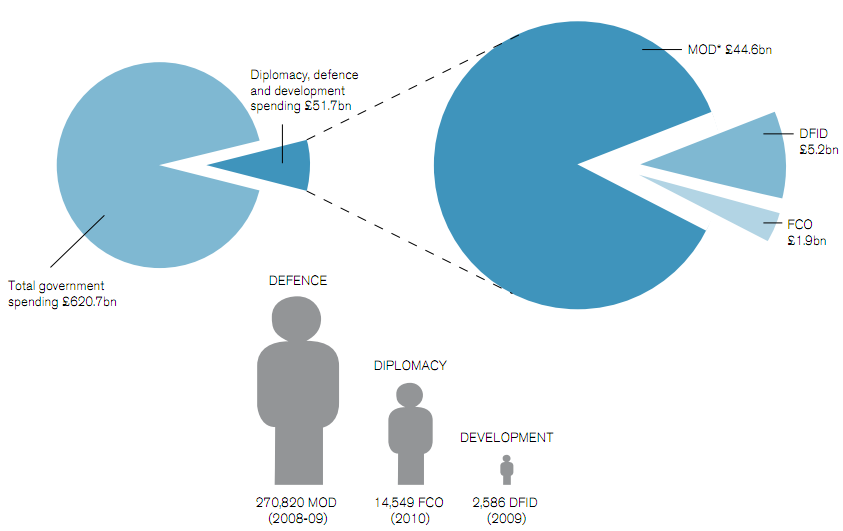Here in the UK, there’s a big media hoo-ha underway about a leaked letter from Defence Secretary Liam Fox to the Prime Minister about the UK’s foreign aid budget (see this Mail article for the full text). In it, Fox argues that the government should execute a U-turn on the promise that it made on aid spending in its coalition agreement (pdf), which said that:
We will honour our commitment to spend 0.7% of GNI [Gross National Income] on overseas aid from 2013, and to enshrine this commitment in law.
Fox, on the other hand, now argues in his leaked letter that the government should not go ahead with a Bill as proposed in the coalition agreement, as such a Bill could
…limit HMG’s ability to change its mind about the pace at which it reaches the target in order to direct more resources towards other activities or programmes rather than aid.
I’d be the first to concede that development advocates need to do a much better job of explaining why we should be spending so much on DFID (c.f. this post in March), and I also agree with the view that while Fox’s leaked letter will doubtless win him plaudits from his party’s right wing, it won’t help David Cameron’s larger agenda of ‘detoxifying’ the Conservative brand on development – where, to give credit where it’s due, Andrew Mitchell has done a genuinely good job.
(It’s also worth noting, incidentally, that by no means all opinion formers on the Tory right are with Fox on his scepticism about UK aid: Iain Dale was surprisingly supportive of DFID on LBC last night, and Conservative Home’s Tim Montgomerie noted yesterday that “I’ve witnessed first hand how British aid is saving lives.”)
But I think the “sources close to the Defence Secretary” who’ve been briefing so assiduously over the last few days make a miscalculation in framing the implicit question as a zero sum choice between aid and defence – i.e. ‘why are we spending so much in Africa when we’re slashing the armed forces even as British forces are deployed in both Afghanistan and Libya’.
As David Steven and I argued in Organising for Influence (pdf), the report on UK foreign policy that we did for Chatham House just after the election, that’s the wrong way to look at it. Instead, in an era characterised by global risks, the UK should be looking to upgrade all aspects of its international work – development, defence and diplomacy – which account between them for well under 10% of UK government spending. 
Liam Fox clearly doesn’t see it this way. But it’s striking that his erstwhile US counterpart, recently retired Defense Secretary Robert Gates, manifestly does:
Defense Secretary Robert Gates called the Senate Budget Committee chairman at home to lobby for more money — but not for a bigger defense budget. Sen. Kent Conrad, D-N.D., revealed Monday that Gates called to ensure the broad 2010 federal budget included more State Department funding [which includes the budget for foreign aid – ed.].
Conrad said he was ready to propose a $4 billion reduction in international relations and foreign aid in the belief that spending money on domestic programs was more important. “They were a little unhappy or disappointed that I was cutting,” Conrad said.
Secretary of State Hillary Clinton called to ask Conrad to change his mind, which is nothing unusual. But Gates’ call was something new, Conrad said. “I have never before in my 22 years on the budget committee had the secretary of defense call me to support the budget for the State Department,” Conrad said.
Gates said it was in the Pentagon’s interest to have a healthier foreign aid budget, Conrad said.



